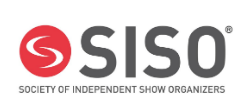
MIC Coalition
We want to make it easier for businesses to legally play music.
Not harder.
Who we are
Mic (pronounced “mike”, as in “microphone”) coalition is a group of associations whose members provide music over the nation’s airwaves, through the internet and in stores, hotels, restaurants, bars, wineries, taverns, concert halls, and live entertainment venues throughout the country. The coalition is committed to a rational, sustainable and transparent system that will drive the future of music and ensure that consumers have continued access to music across a variety of platforms, venues and services.

Why we are here
We’re calling on legislators to adopt policies that promote a transparent and functional music marketplace that benefits consumers, creators, and millions of american businesses.

Market Competition
ASCAP and BMI together control the right to license approximately 90% of all musical works in the U.S. Consent decrees allow these two performing rights organizations (PROs) to offer blanket licenses for their massive catalogs, providing critical efficiencies for all stakeholders. We have worked tirelessly with the last two Administrations to promote music marketplace competition, transparency and efficiency by preserving the ASCAP and BMI consent decrees. They remain vital to millions of American businesses and their consumers.
Transparency
As the U.S. Congress continues its review of the copyright laws that govern music licensing, the MIC Coalition is hopeful that it advances reform legislation to bring greater transparency to the music marketplace. This includes creating a comprehensive and authoritative database to finally provide a transparent, accurate, and fully searchable record of music ownership and licensing information available to everyone.



















